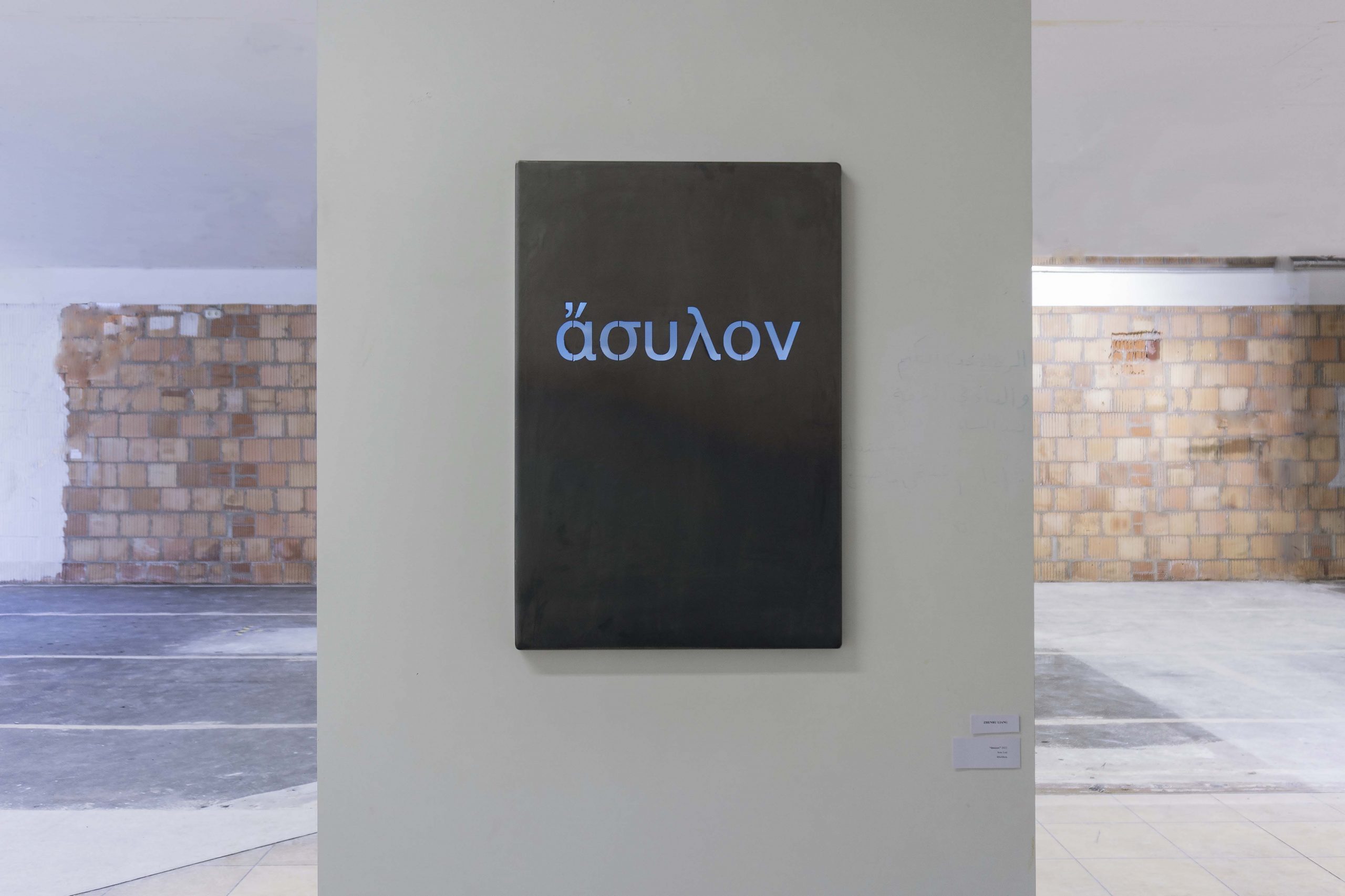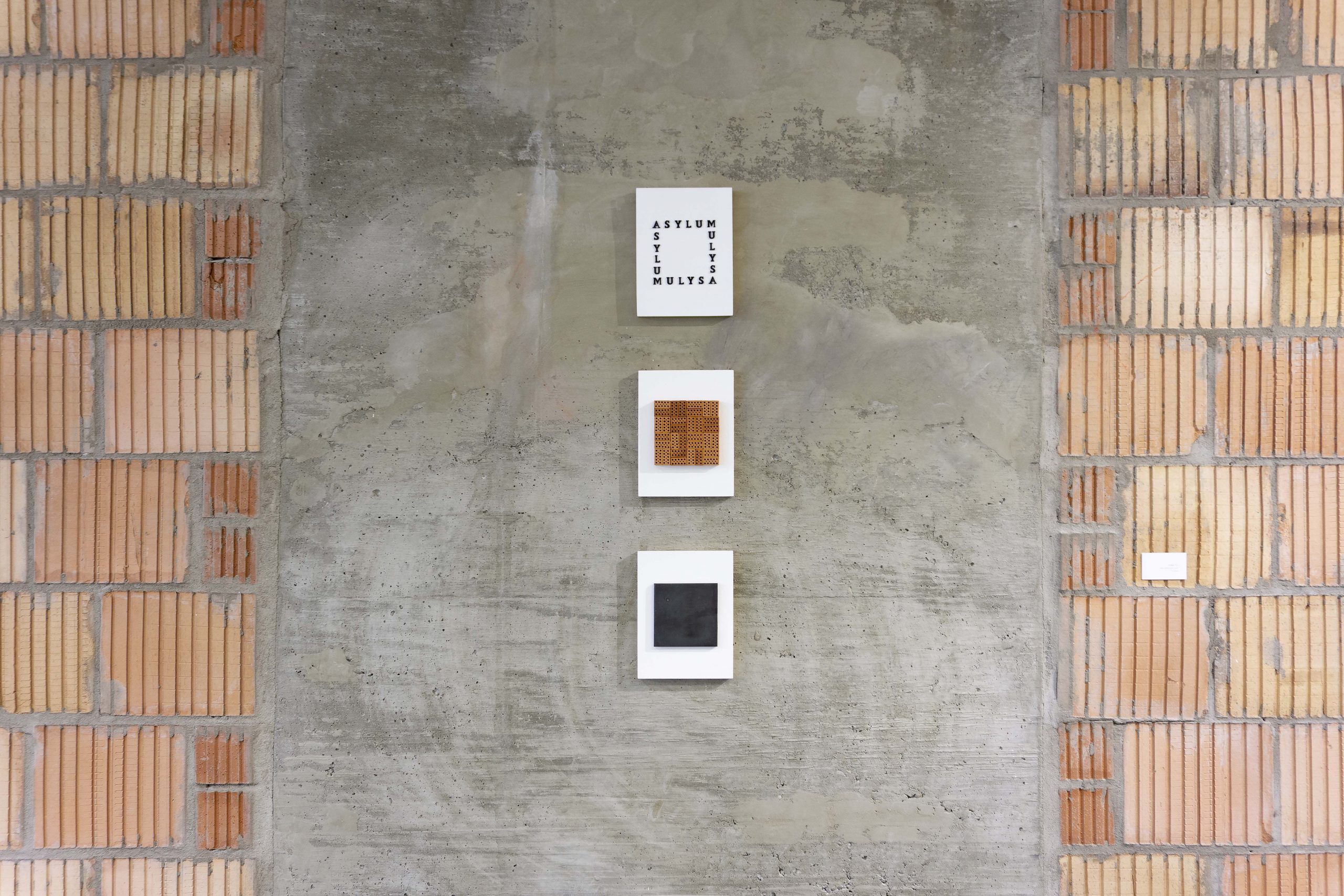
iron, led 2022

Iron, earthenware, wood
Άσυλον-Asylum, an everlasting meaning of Justice
One of the primordial terms about law abiding acts that always regulated the social life of men, whose meaning has recently regained an exceptional significance, is the word “asylum”. Drawn from the greek word άσυλον the etymology of this term regards the secure places or sanctuaries where someone who felt a victim of injustice could seek refuge so that none could harm him/her. A right that was not relegated by the laws of the City, but was recognized as a natural possibility of anyone to seek justice by evoking the help of the Gods in order to make his voice and arguments heard. In ancient Greece in every City there was a designated place and Temples, altars or other holy monuments that the asylum seekers or suppliants could seek protection from the enemy, beg for mercy, or raise a case in order to get justice. In the Greek Tragedy the recurrent theme of asylum seeking from an exile, a homeless, a logical unwilling and derelict to his passions criminal, has provided some of the most emotionally and philosophically significant passages in the world’s literature, philosophy and Law tradition: Oedipus in Colonus is an asylum seeker, such as Orestes and Medea, the Children of Hercules or the Daughter of Danaos. The breach of this unalienated right’s holiness was unthinkable and as the History teaches us (i.e the famous Cylonian Affair) was always provoking a repudiation for the actors of this “miasma” (μίασμα). The reverence of the Ancient Greeks to the meaning of Asylum constitutes a vociferous example for the current situation and should lead us to reconsider the right of the plead of the exiles, the homeless, the persecuted of our times.
Dr. George-Byron Davos